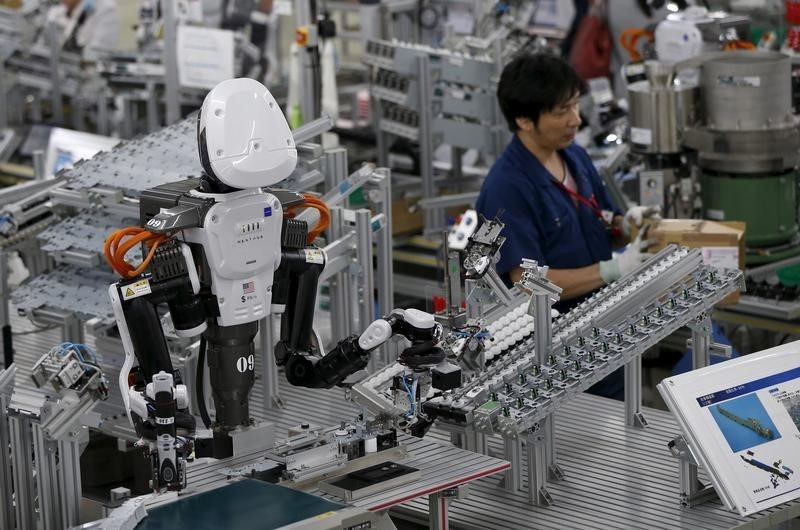Fubotv earnings beat by $0.10, revenue topped estimates
(Bloomberg) -- Japan’s industrial production fell in December, following record gains a month earlier but an overall solid quarter for manufacturing likely helped restore economic growth at the end of 2021.
Declines in production of general machinery and chip-making devices pushed overall factory output down 1% from the level in November, when it surged a record 7%, the economy ministry reported Monday. Analysts had expected a 0.6% drop.
A separate report showed retail sales also dropped 1% in December, slipping on a month-on-month basis for the first time since August even before the omicron variant began its rapid spread.
Despite December’s drop in production, a solid quarter for manufacturing suggests Japan’s economy was getting back on track at the end of last year after shrinking in five of the previous nine quarters. For the quarter, production increased 1% on a seasonally-adjusted basis.
Record cases of the virus at home and abroad, driven by the fast-spreading omicron variant, have clouded the outlook in recent weeks. Supply-chain disruptions that have bedeviled manufacturers everywhere spurred the International Monetary Fund last week to predict slower global growth this year.
What Bloomberg Economics Says...
“We expect production to pick up in January, driven by strong exports to the U.S. with a tailwind from a weak yen. Even so, supply chain problems caused by outbreaks of the omicron variant as well as China’s slowdown remain downside risks.”
--Yuki Masujima, economist
To read the full report, click here.
Manufacturers surveyed by the economy ministry said they planned to raise output by 5.2% this month and another 2.2% in February, results that suggest continued recovery in the factory sector.
Still, supply chain problems persist. Over the past few weeks, Toyota Motor (NYSE:TM) Corp., Japan’s biggest company by sales, was forced to announce several cuts to its January production due in part to component shortages stemming from a Covid outbreak at a Japanese factory operated by a seatbelt and airbag maker.
Covid Outbreak at Seat Belt Supplier Behind Toyota Output Cuts
In the U.S., the Biden administration last week warned that the global semiconductor shortage will persist until at least the second half of this year, promising long-term strain on a range of including automakers and the consumer electronics industry.
Factory output will be key to keeping Japanese growth going this quarter, given surging omicron cases that have triggered renewed restrictions across the country that are likely to deter shopping and eating out. With the 7-day average of infections now topping 70,000 nationally, quasi-emergencies were declared for Tokyo and most other major business centers this month.
A purchasing manager’s index of manufacturing activity released last week showed the sector holding up in January, with the gauge climbing to its highest level in at least three years. The survey showed new order growth quickening at the fastest pace in nine months.
Prime Minister Fumio Kishida’s stimulus package is also expected to start supporting the economy this year with a range of measures including subsidies to ease the impact of rising gasoline prices on consumers.
(Adds production forecasts.)
©2022 Bloomberg L.P.
